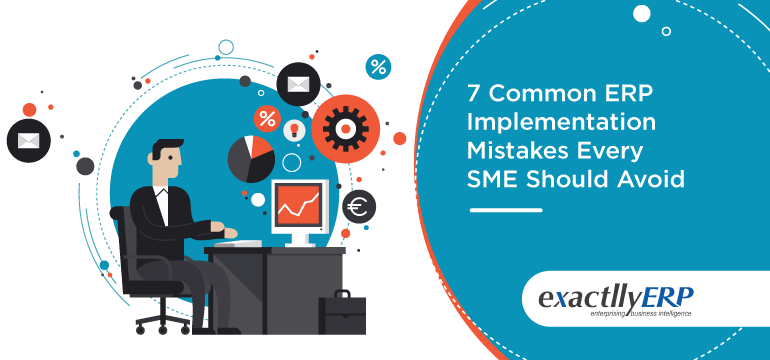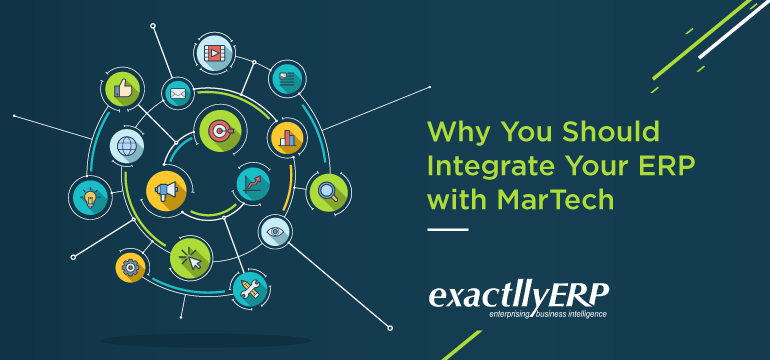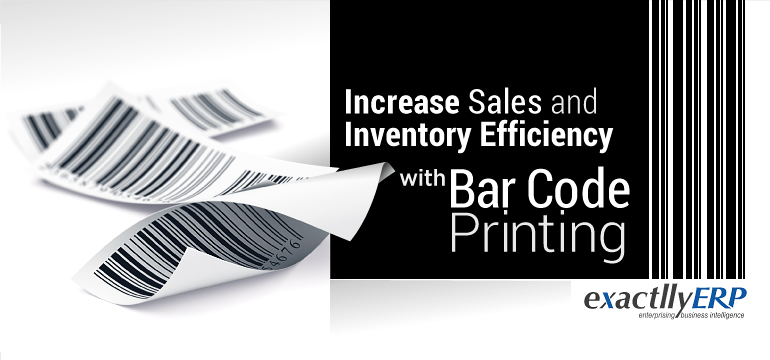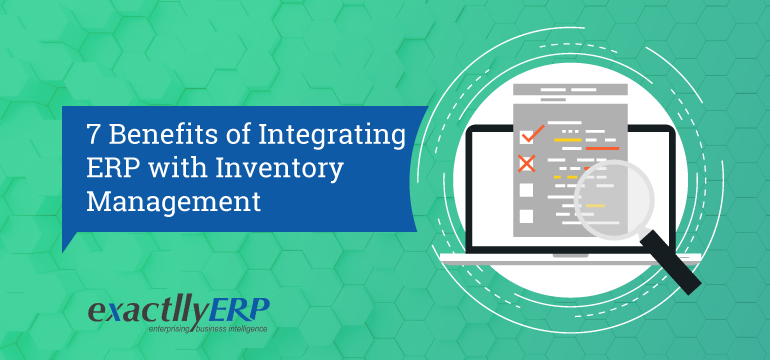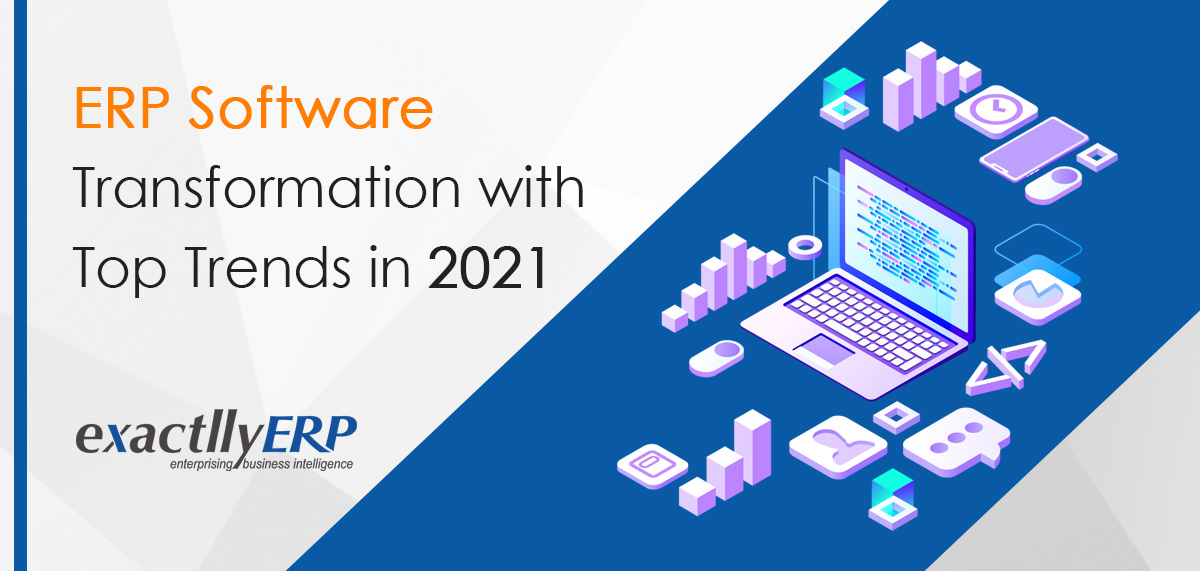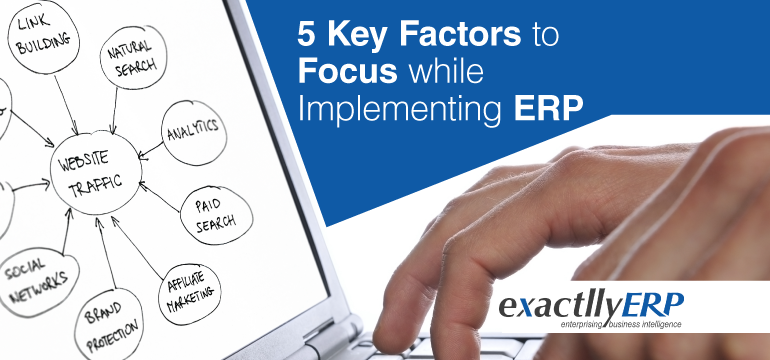Why do ERP Projects Fail So Often

ERP projects are implemented in order to reduce cost, streamline existing business processes and have greater visibility in operations that helps in making faster and informed decisions. Despite all these lustrous benefits, many businesses leave the project midway or fail disastrously. In many other cases, they are often plagued by missing project deadlines and overbudgeting. The problems crop up when the ERP project is badly planned without taking a holistic approach. Project implementation cannot happen overnight neither it’s planning.
Let us look at the key reasons responsible for the ERP debacle:
Letting the Vendor define your needs –
Vendors’ sales force is aggressive in approach as they want to fulfil their targets. At least caring about your actual needs, their focus is mainly to push their software features down your gullet. This is where you start digressing from the target. It is agreeable that standard ERP software has many modules linked with it. But it is completely up to your discretion, what modules and features to implement. With a detailed assessment of your business, you must pinpoint why is it that you need an ERP. Is it to stay competitive or add value to your business? What can it offer? Can you do without it? Are the time, money and resources put in by you worth the investment?
Failure to plan the Implementation Process –

ERP projects suffer because businesses rush things up and fail to devote enough time to planning. Unplanned ERP implementation will leave your organization high and dry. The simple reason is that the ERP project is large and complicated. You need to figure out the time you need to devote on a daily basis. How long is it going to take to implement? In how many phases do you plan to carry out the implementation? A standard implementation cycle includes evaluation of ERP package, requirement analysis, project planning, business process re-engineering, training and testing.
Lack of flexibility in adapting to changing supply chain needs –
ERP projects can’t be rigid in their approach. Business environments are dynamic. ERP should facilitate customization for the individual customer especially key customers. A business has a different type of relationship with every customer and supplier. ERP model should be flexible enough to accommodate every stakeholder. The flexibility should not be limited to operational collaboration but rather contain strategic partnership. And when the need arises, there should be a provision to disengage from a supplier or customer without affecting the whole system.
Poor existing Data Quality –
ERP projects thrive on the data quality of your organization. If there are multiple software in place before ERP implementation, how do you plan to merge the data? How do you get rid of double entries? Is your data present in spreadsheets or it needs to be fed into them? Usually, organizations have loads of data accumulated over the years. Before you implement ERP, you need to take a decision on what data to keep and what to let go of.
Poor Business Processes –
Are your processes inclined towards the ERP model? ERP models dwell upon existing business processes. But if your business processes whether related to supply, billing, payroll, customer service etc are indigenous and unsuitable for a formal system; you must rethink if you really need an ERP. It is quite possible that simple software can help you overcome your problems. A forced ERP implementation will deteriorate your existing business processes.
Lack of in-house IT support 
ERP projects are in need of continuous IT support for the operation, maintenance and upgrade. Do you have an in-house IT team capable to handle ERP? Do you need to change your hiring strategy by inducing people with a specific skill-set? Lack of team leaders with no or insufficient experience in ERP handling makes it frustrating to implement ERP. Though you can hire system integrators it costs you a lot of money to do that. System integrators take time to understand your organization while the in-house team will be quick enough to resolve an issue.
Prioritize and test the critical tasks –
ERP has the capability to handle various tasks simultaneously. But it is not practically possible to test all the tasks before implementation. Mark out the critical tasks which form the basis for ERP implementation. Test their efficiency and analyze their impact on your organization. Is there a scope for improvement? If so, modify the system and re-test it.
Lack of proper training program –
How much ever compatible your ERP software is, it is ultimately your workforce who runs it. And poorly trained employees are incompetent to operate the system. Lack of a formal training program bogs down all your efforts in ERP selection. Before you begin training, you must know whom to train and who will train. Do you have in-house training experts? If you need to hire an ERP training professional, then you must consider the cost escalation. Assess your training needs. If you have multiple business units, what location should be chosen to train? Develop a detailed training course and a training schedule.
The magnitude of the ERP project –
Organizations are often marred by the magnitude of ERP projects. ERP projects start at a lower scale but they scale up quite faster. All your processes suddenly come under the umbrella of ERP. Initially, you have to face many problems. You have to spend time to understand and get used to it. It is always better to hire a project manager who will smoothly lead you through this complex project.
Strictly follow the schedule –
A time-bound ERP project is more likely to succeed than a loosely-bound project. A loosely bound project soaks a huge amount of money and resources. Many organizations follow a schedule in the beginning but lose track in between. You need to have an aggressive approach while implementation. If a problem occurs, try to resolve it as soon as possible.
Change Management –
ERP is a combination of business processes and information technology. It brings about a massive shift in your organization. The implementation affects your suppliers, employees and customers. Though you can take care of your employees by training them, how are you going to manage your vendors and customers? Are they ready to accept this change? Will their business be harmed by it?
Lack of data sharing capability within the Supply Chain –
While your ERP system is planned to do wonders for your business, it is rendered useless when the data communication gets affected within the supply chain. It should be easily able to share data with your suppliers and accommodate data shared by them. Overcome these shortcomings by using add-on data communication tools, data warehousing tools, and supply chain execution systems.
Points to remember:
The success of an ERP project is governed by various factors including need assessment, the software is chosen, vendor support and the capability of your organization to handle such a project. Also, it is true that ERP software needs some degree of customization for every business due to varying needs. But over-customization diminishes the value offered by ERP software. It is a natural tendency of senior employees to further simplify the processes offered by ERP. You should question every customization effort made by them. Always keep the project manager and vendor in the loop if you plan to customize. In order to ensure that ERP projects do not fail, all the above points need to be kept in mind.
Feel free to Contact Us and get a Free Demo.

